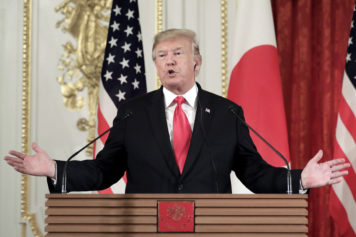
The hollowing out, the emptying of the Black community, is a form of genocide. As The New York Times reported in 2015, there are 1.5 million missing Black men in America, with only 83 Black men for every 100 Black women not in jail. This gap, due mostly to dead or jailed Black men, is nonexistent among whites.
We understand the scope of the problem, but how do we solve it, and what is to be done? One policy expert is proposing a simple solution: Cap all prison sentences at 20 years, with a review board of psychologists and other professionals to recommend public safety warrants, additional imprisonment or a treatment plan for eventual release.
Writing in Democracy: A Journal of Ideas, Marc Mauer, executive director of The Sentencing Project and the author of Race to Incarcerate, makes his best case for this proposed upending in criminal justice policy. Mauer argues that the tripling of the U.S. prison population since 1980 was a consequence not of increased crime rates, but of a policy change—with half of the prison boom due to mandatory minimum sentencing and prosecutorial charging decisions, and the remaining half because of longer prison sentences.
According to Mauer, most other democratic nations do not engage in such draconian prison terms, certainly not beyond 20 years. A mass murderer in Norway, for example, who killed 77 people, was sentenced to 21 years, followed by a period of civil confinement if necessary. In addition, some people—around a half million of the 2.2 million prisoners in the U.S.—are sentenced to exceedingly long sentences for nonviolent drug offenses. And many “age out” of crime and mature while in prison, yet they are sentenced at a time when no one can predict who will remain a threat to society, or for how long. Further, calling America’s excessive incarceration for violent and nonviolent crimes “counterproductive, costly, and inhumane,” Mauer also points out the glaring racial component of prison expansion:
Lengthy prison terms also exacerbate the dramatic racial and ethnic disparities that have defined the phenomenon of mass incarceration. Nationwide, nearly two-thirds of the people serving life in prison are African-American or Latino. The sight of elderly men of color in prison uniforms and bound in wheelchairs only reinforces the racialized nature of incarceration in the modern era.
The public has been sold a bill of goods regarding the purported public safety of these long prison sentences, but the policy has not delivered. Testifying before a task force on federal corrections, Mauer noted that long sentences present with them opportunity costs, leaving fewer dollars for other social and public safety programs. “For example, public funds spent on prisons are not available to invest in crime prevention initiatives such as early childhood education, therapeutic interventions for at-risk youth, and treatment for substance abuse and mental illness,” he said.
Mass incarceration is a new form of slavery. Not surprisingly, Black folks are being hit the hardest, with absent parents and deteriorating communities resulting. With more people out of prison and present in the lives of their families, we can break our cycle of dysfunction, poverty and hopelessness. In any case, there is strength in numbers, and we are trying to fight a war with many of our soldiers incapacitated. If we can bring our incarcerated citizens back into society to become productive, valuable members, Black people will be better for it.


